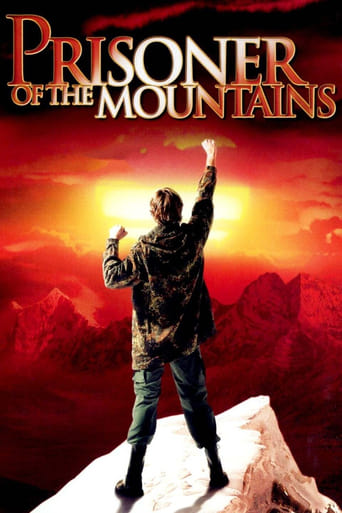adriennenoracarter
In Bodrov's Prisoner of the Mountain, Ivan (Vanya) has just entered the Russian army. He's barely uniformed by the time he is on his way to Chechnya. On the road into the mountains, the group comes under attack by a group of Chechen rebels. Vanya and Sacha are both knocked out and taken prisoner by the Chechens in the attack. One of the Chechens, Abdul, is hoping to trade the two Russians for his son, who is being held in a Russian army prison. The story that ensues shows both the cruelty and humanity that can be found in war. Both sides commit atrocities: the two captives kill the mute Hassan in their struggle as they attempt to escape—this is one cruelty on the Russian side. A Chechen father kills his son who has traded sides in order to work for the Russian police. Neither side has its hands clean. However, even in the midst of war, love can be found in this story— not just the fraternal love that grows between Vanya and Sacha, but love between enemies. Abdul's daughter Dina is kind to the captured soldiers, and in turn, Vanya shows her kindness she doesn't experience from her peers. She wants to help him escape, but he refuses to go because he knows that the rest of the villagers will never forgive her. Vanya, throughout the movie, represents an opposition to war. He never directly kills anyone, and never even learns how to properly handle a gun; even by the end of the movie, he is misfiring his weapons. When he is going to spar with the Chechen leader's nephew, he comes off as a pacifist. Even when he knows Sacha is dead, he doesn't turn to violence as a solution. A beautiful story with a beautiful backdrop, Prisoner of the Mountain is a true Russian gem.
jherr
As other have commented, the movie tries to apply a relatively even hand to both sides of the chechen conflict, possibly being a little more biased to the chechen point of view. What surprised me about this movie was that I came out of it more supportive of the Russian side of the conflict. Let me explain: Lets say you are a American living in present day Wyoming. Now imagine if there still existed unassimilated cheyenne indians in the area living out their old traditions and who would still periodically conduct war parties and scalp and kill anyone they found who was not a part of their tribe. If you are living in Wyoming, taking trips outside urbanized areas becomes quite harrowing. Such conditions would make one lose one's fascination of Indian culture quite rapidly.Present day conditions in the Caucauses are not so much different than the hypothetical example given above. These traditional Islamic cultures can be extraordinarily savage and haven't progressed much in the last 1000 years. The only current technology they have embraced is that which allows them to kill more people.The movie is well written and directed. It does try to be as honest as humanly possible with the subject matter. As a result, one is not preached to and allowed to make up their own mind, which is very rare in film.
ereinion
Sergei Bodrov shows here that he is one of the most talented filmmakers in Russia today, with this riveting tale from the Chechen war. "Kavkazskij plennik" stars his own son Sergei jr. and Oleg Menshikov and both do a fabulous job as the Russian soldiers imprisoned by the Chechens in Caucasus.This movie is just what the world needed at such a time-an open hearted and humanistic telling about the evils of war and the uselesness of it all. Although the Russians can sometimes seem portrayed as the better side here and Chechens as ruthless, primitive, barbaric religious fanatics, the portrayal of the Russian commander quickly erases that impression. Here we see the laid back and careless attitude that mirrors the real Russian generals' attitude.The film is pretty tragic, from the death of Menshikov's character and to the tragic and unfortunate killing of Abdul-Murat's son, yet it leaves some hope in the end as Abdul-Murat shows pity for the young soldier whose mother has appealed for his release directly to him. But just as you think that this film will end well, the airplanes come. The ending is truly remarkable and well shot. It echoes the message of the absurdity of war and leaves us with little hope for the peace in the Caucasus.10 out of 10.
lgjones-2
Best, most moving anti-war movie I've ever seen. The scenery is breathtaking. The acting and direction superb, and the story is without equal. Highly recommended for anyone who likes great movies. This Russian movie is incredible in scope and production. Two thumbs up!


